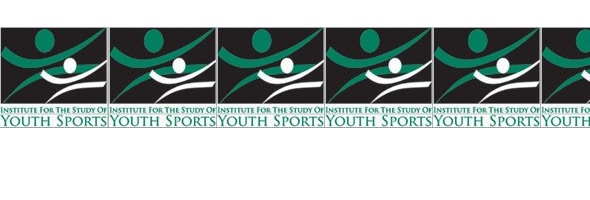
Specialization Not the Only Pathway
April 21, 2015
 By Eric Martin
By Eric Martin
MSU Institute for the Study of Youth Sports
Specialization is not a new topic facing athletes and parents.
In a 1989 study by Hill and Simons, athletic directors indicated that the three-sport athletes of the past were being replaced by athletes who only participated in a single sport. Multiple athletic directors indicated that the decrease of multi-sport participation was a concern for all involved in the sport environment as increased emphasis on sport specialization was not in the true vision of high school sports.
Even though the distress concerning sport specialization is not a new topic, the rise of club sports and year-round travel teams have increased the number of youth athletes who are forced to make a choice between playing multiple sports or focusing their time and training efforts solely on one sport. The decision to focus solely on one sport sometimes is done by athletes (or their parents) who believe that quitting other sports is the sole way to earn a coveted college scholarship.
However, even though counter intuitive, sport specialization may be hampering their pursuit to play at the next level.
Elite level achievement in sport is rare, with statistics showing that only 0.12 percent of high school athletes in basketball and football eventually reach the professional level. To combat these odds, many in popular media including Malcolm Gladwell have forwarded Anders Ericcson’s proposal that to become an expert in a field, an individual must accumulate 10,000 hours of practice.
To achieve this aim, many parents and athletes disregard other sports believing that extra exposure to a single sport may result in accumulating these hours quicker and increase an athlete's chances of elite skill achievement. Reducing the achievement of sport excellence to solely practice hours overlooks the importance that developmental, psychosocial, and motivational factors play in the achievement of high level success in youth. Further, several research studies have found that elite athletes typically fall short of this 10,000 hour milestone.
Simply accumulating a magic number of hours does not guarantee sport success, and in fact, trying to accumulate these hours too early can lead to many different negative outcomes for youth.
Sport specialization has been shown to have a variety of negative physiological and psychological outcomes for youth athletes. Typically, athletes who specialize in one sport play that sport year-round with little or no offseason. In these cases, athletes who continually perform repetitive motions such as throwing or jumping can experience overuse injuries that can range from tendinitis to torn ligaments.
In addition to the increased risk of injury, youth who specialize and play a single sport year-round are at risk for psychological issues as well. Youth who play a single sport are less likely to allow for proper recovery and face the increased chance of burnout or decreases in motivation that may result in leaving sport entirely. Additionally, as practice time demands and multiple league involvement increases, youth may feel added pressure to succeed due to the increased time and financial costs incurred by parents.
Finally, youth who specialize early in only one sport do not develop the fundamental motor skills that help them stay active as adults, instead only developing a very narrow skill set of a single sport.
If the dangers of sport specialization do not encourage multisport participation, a majority of studies have shown that sport specialization does not increase long-term sport achievement. In fact, most studies indicate that athletes who reach the highest level of sport achievement typically played a variety of sports until after they were well into high school.
For example, a study with British athletes found that youth who played three or more sports at the ages of 11, 13, and 15 had a significantly higher likelihood of playing on a national team at ages 16 and 18. These athletes had a more rounded set of skills, were more refreshed for their chosen sport, and were more psychologically and emotionally ready to perform due to their experiences in a number of sports.
A study recently conducted by the Institute for the Study of Youth Sports with collegiate athletes showed similar results as the British athlete study. In the ISYS study, 1,036 athletes from three Division I universities were asked to report their past youth sport participation. On average, youth participated in three or more sports in elementary and middle school. The number of sports youth participated in decreased with each year of high school, but even with the decrease of participation, a larger number of individuals played more than one sport during every year of high school including senior year than those who played a single sport.
Even though a majority of athletes did play at least two sports throughout high school, several athletes did indicate that they specialized in one sport indicating that there are multiple pathways to elite sport achievement.
Athletes were also asked for their perception of how important it was to specialize in one sport in order to earn a college scholarship. On a scale of 1-9, athletes felt that specializing in one sport prior to high school was neither important nor unimportant (4.97).
Sport specialization is not a new issue, but that does not minimize the damage that can occur if athletes are overtaxed early in their development. Each athlete is unique, and each situation requires care. If an athlete does decide to play in only one sport, the decision should be made in regards to the athlete’s interest and development, not just in the pursuit of a college scholarship. Additionally, if athletes specialize in one sport, it is critical to understand that youth are developing and proper recovery is critical both physically and psychologically.
Early specialization in sport is an issue that is not going to go away, but for coaches, parents, and athletes this decision should be made with a long-term perspective and with the athletes’ long-term well-being central to the choice.
Martin is a fourth-year doctoral candidate in the Institute for the Study of Youth Sports at Michigan State University. His research interests include athlete motivation and development of passion in youth, sport specialization, and coaches’ perspectives on working with the millennial athlete. He has led many sessions of the MHSAA Captains Leadership Clinic and consulted with junior high, high school, and collegiate athletes. If you have questions or comments, contact him at [email protected].

Whymer Made Blue Water Moments into Memories
By
Paul Costanzo
Special for MHSAA.com
September 29, 2020
 When considering all the reasons Jim Whymer was a beloved and Hall of Fame sportswriter in the Thumb area, one stands out above the rest – he cared.
When considering all the reasons Jim Whymer was a beloved and Hall of Fame sportswriter in the Thumb area, one stands out above the rest – he cared.
He cared about the quality of the sports section at the Times Herald in Port Huron. He cared about making sure the impossible task of covering schools and sports as equally as possible was accomplished. And he cared about what the newspaper meant to the community.
But most of all, he cared about the people he was writing about.
“He wasn’t going in it just to get a story – he cared about people,” said Shawn Sharrow, a 1994 Marine City graduate who coached basketball at Marine City and St. Clair. “He cared about relationships. As much as he liked sports, he liked people and building those relationships over the years. After he did an interview with you, he would stand there and talk with you for another half hour. He just wanted to develop those friendships.”
Whymer, who worked at the Times Herald from 1978 through 2012, died this past Thursday of metastatic melanoma. He was 64.
He is survived by his wife, Patty, his children Traci Whymer (Tyson Connolly), Kyle (Amanda) Whymer and Joel (Rachel) Whymer, and his grandson, Finn; and by his mother Teresa, sister Michele Seif and brother Bill (Pattie).
He also is survived by the countless yellowing press clippings with his byline that can be found in hundreds of scrapbooks throughout homes in the Blue Water Area. Clippings that no doubt made special memories that much more special for those holding onto them.
 “I think like no other person I’ve been around, he made kids feel special,” Port Huron Northern boys basketball coach Brian Jamison said. “He had an amazing ability to make kids feel special. It was in his articles and how long he would take to talk to a kid. He would know the kid’s uncle and their cousin, and he would talk to them about that. I think kids genuinely felt better after talking to him.”
“I think like no other person I’ve been around, he made kids feel special,” Port Huron Northern boys basketball coach Brian Jamison said. “He had an amazing ability to make kids feel special. It was in his articles and how long he would take to talk to a kid. He would know the kid’s uncle and their cousin, and he would talk to them about that. I think kids genuinely felt better after talking to him.”
Whymer won several awards for his journalism, including a spot in the Basketball Coaches Association of Michigan Hall of Honor and the Port Huron Sports Hall of Fame.
Good luck finding those awards displayed anywhere, though. Whymer was more interested in making sure the athletes and coaches were getting proper recognition.
“He was really thorough and really interested in what we were doing, even in little old Deckerville when he had Port Huron and Port Huron Northern in his backyard,” Deckerville football coach Bill Brown said. “He’d come up to Deckerville, he’d even go to playoff games – we'd play across the state and he was there. Then after the game, he would just ask you respectful questions. It’s just too bad, because he’s definitely going to be missed. Everybody looked forward to seeing him. He was more than welcome here; he probably could have stayed overnight at someone’s house if he needed to.”
Brown, Jamison and Sharrow had interactions with Whymer as players and coaches. Brown also got to see Whymer as an official, as Whymer worked for more than three decades officiating basketball, baseball, softball and football games throughout the area.
“You can’t even get mad at the guy because he’s such a good guy,” Brown said with a laugh. “He was always square with you.”
Jamison also coached both of Whymer’s sons, and currently has Kyle as his junior varsity basketball coach at Northern. All of the Whymer children played sports at Northern, with Traci being part of an MHSAA title-winning tennis team and Joel setting records on the basketball court and earning a scholarship at Lake Superior State University. (He would later transfer to Grand Valley State.)
 “Jim’s always been more like family to me,” Jamison said. “I think everyone feels that way about him. He’s like your fun uncle that you love to talk to. Jim always did a nice job of keeping the story separate from him being the dad. In that respect, he made it easy on me. He was very, very supportive of his children. That’s something – as special as other people felt – that guy was truly all in for all three of his kids when it came to sports and school. I think he was an ultra-professional, and he didn’t want to overwrite about his kids.”
“Jim’s always been more like family to me,” Jamison said. “I think everyone feels that way about him. He’s like your fun uncle that you love to talk to. Jim always did a nice job of keeping the story separate from him being the dad. In that respect, he made it easy on me. He was very, very supportive of his children. That’s something – as special as other people felt – that guy was truly all in for all three of his kids when it came to sports and school. I think he was an ultra-professional, and he didn’t want to overwrite about his kids.”
After leaving the Times Herald, Whymer began working in the athletic department at St. Clair County Community College, where he continued his quest to make things as special as possible for student athletes. His main duties included scheduling high school and middle school events at the college’s Fieldhouse – whether it be smaller local tournaments or a multi-day holiday basketball showcase that grew to more than 40 teams.
The Fieldhouse can fit more than 2,000 spectators, and Sharrow said if not for restrictions because of COVID-19, a memorial service for Whymer could fill it. That’s likely not an exaggeration.
“He might be showing up at your practice in the last 10 or 15 minutes, and he always walked in the gym with a smile on his face,” Sharrow said. “If he was ever having a bad day, you’d never know it. He made athletes feel important. Even watching him as a coach talking to my players, you could see their faces light up that they were going to be in the paper and that Jim Whymer wanted to talk to them.”
 Paul Costanzo served as a sportswriter at The Port Huron Times Herald from 2006-15, including three years as lead sportswriter, and prior to that as sports editor at the Hillsdale Daily News from 2005-06. He can be reached at [email protected] with story ideas for Genesee, Lapeer, St. Clair, Sanilac, Huron, Tuscola, Saginaw, Bay, Arenac, Midland and Gladwin counties.
Paul Costanzo served as a sportswriter at The Port Huron Times Herald from 2006-15, including three years as lead sportswriter, and prior to that as sports editor at the Hillsdale Daily News from 2005-06. He can be reached at [email protected] with story ideas for Genesee, Lapeer, St. Clair, Sanilac, Huron, Tuscola, Saginaw, Bay, Arenac, Midland and Gladwin counties.
PHOTOS: (Top) Longtime sportswriter Jim Whymer works the phones during his time at the Port Huron Times Herald. (Middle) Whymer also was an MHSAA-registered official for 35 years. (Below) Whymer is survived by his wife Patty and their three children. (Photos courtesy of the Whymer family.)

